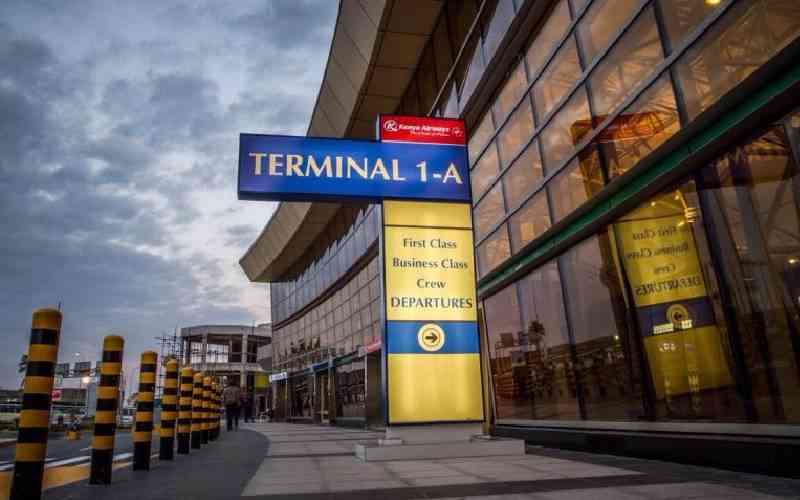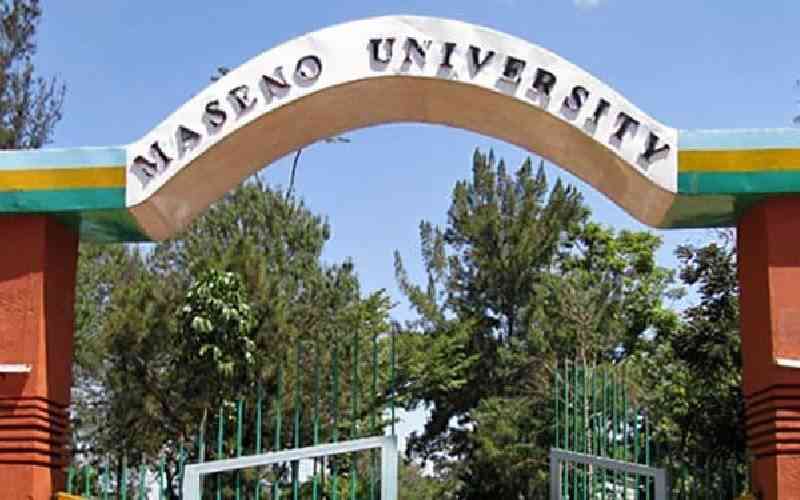Lorem ipsum dolor sit amet adipisicing elit. Sapiente fuga nisi rerum iusto intro.
Lorem ipsum dolor sit amet adipisicing elit. Sapiente fuga nisi rerum iusto intro.


If the upgrade and management of Jomo Kenyatta International Airport (JKIA) is to be awarded to a private operator, what prevents the government from inviting bids from all competent private airport operators?
Before zeroing in on India’s Adani Airport Holdings, it would make a lot of sense for the government to consider other competent private airport operators. What would Kenyans lose if the proposal to concession JKIA was subjected to international competitive bidding?
How and what will Kenyans gain if JKIA is leased to a pre-determined concessionaire beyond what they would have gained if the matter was subjected to international competition? Airport concessioning is not a new phenomenon. In fact, the model is, at least, 28 years old. In time, the phenomenon has become a global trend.
Globally, there exist, at least, five other experienced and competent airport management companies, besides India’s Adani Airport Holdings. The five are Germany’s AviAlliance, formerly known as Hochtief Airports, Grupo Ferrovial of Spain, Fraport, also of Germany, Aeroports de Paris of France and Vinci Airports, also of France.
The doyen of them all is Dusseldorf-based AviAlliance, formerly known as Hochtief Airports, which was awarded a 50-year concession to design, finance, build and operate Athens International Airport in 1996.
Built between 1996 and 2001, Athens International Airport Eleftherios Venizelos became the world’s first airport project to be built under the build, own, Operate and Transfer (BOOT) model. The airport opened for business in March 2001, in time for Athens to host the 2004 Olympic Games.
Hochtief Airports was a subsidiary of a larger conglomerate, Dusseldorf-based Hochtief GmbH, a global construction and infrastructure operator. The subsidiary would later be sold to Canada’s Public Sector Pension Fund and renamed AviAlliance.
Currently, AviAlliance operates other airport concessions and owns 49 per cent of Hamburg Airport, 30 per cent of Dusseldorf Airport and 40 per of San Juan Airport in Puerto Rico in the Caribbean. Until June 2024, AviAlliance also had a stake in Hungary’s Budapest Airport, which it sold to the French airport operator Vinci.
The second German airport concessionaire, Fraport, operates Frankfurt Airport besides owning a 51 per cent stake in Turkey’s Antalya Airport on a 50-year concession.
The concession requires Fraport to operate, maintain and develop Antalya Airport. Under Fraport’s management, Antalya Airport handled 23.6 million passengers in 2023.
In neighbouring Greece, Fraport operates 14 regional airports on a 40-year concession. The 14 include airports at Aktion, Chania, Corfu, Kavala, Kefalonia, Thessaloniki, Zakynthos, Kos, Mykonos, Mytilene, Rhodes, Samos, Skiathos and Santorini.
Across the Atlantic, Fraport’s United States concessions cover seven airports, including Baltimore - Washington International, which handled 27 million passengers in 2023. Others are airports in Cleveland, Ohio, New York, New Jersey, Nashville, Tennessee and Boston Logan. Boston Logan handled 42 million passengers in 2023.
Further south, Fraport owns 80 per cent of Peru’s Lima Airport, on a 40-year concession from 2001. Lima Airport handled 23 million passengers in 2023.Still in South America, Fraport owns 100 per cent of the Brazilian airport of Porto Allegre on a 24-year concession, in addition to a similar concession over Pinto Martins Airport in Fortaleza.
In Bulgaria, Fraport owns a 60 per cent stake in Burgas Airport on a 40-year concession. In India, Fraport has a 10 per cent interest in Indira Gandhi International Airport, Delhi. Also from France, Vinci Airports has concessions to operate 73 airports in 14 countries, including London Gatwick, Edinburgh Airport and Belfast International Airport.
In Portugal, Vinci Airports operates Lisbon Airport and nine others, including airports at Porto, Faro, Funchal, Pinta Delgada, Horta, Porto Santo, Santa Maria, Flores and Beja.
In its home country, France, Vinci operates 12 airport concessions at Lyon, Annecy Mont-Blanc, Nantes, Rennes Bretagne, Toulon, Claremont, Grenoble, Chambery, Dinars Bretagne, Saint-Nazaire and Pays d’Ancienis.
In Hungary, Vinci acquired a concession over Budapest Airport in June 2024 from the German company AviAlliance.
In Japan, Vinci Airports has concessions jointly with Orix Corporation to manage Osaka’s Kansai International Airport, Osaka Itami Airport and Kobe Airport. The concessions run for 45 years from 2015.
Under the joint Vinci Airports/Orix Corporation’s management, Osaka Kansai International has become Japan’s leading airport for low-cost flights and will handle 40 million passengers in 2023. In Brazil, Vinci has concessions in eight airport facilities at Tafe, Cruzeiro du Sul, Boa Vista, Tabatinga, Porto Velhis, Rio Branco, Manaus and Salvador Bahia.
Still in Latin America, Vinci operates concessions over 13 Mexican airports at Zihuatanejo, Durango, Zacatecas, Tampico, Monterrey, Reymosa, Chihuahua, Mazatlan, Ciudad Juarez, Culiacan, Acapulco, San Louis Potosi and Torveon.
In the Cape Verde islands, Vinci has concessions over seven airports while in Serbia, Vinci has a concession over Belgrade Airport.
In Chile, Vinci has a concession over Santiago Airport while in the Dominican Republic, Vinci has concessions over six airports - at Las Americas, Puerto Plata, Samana, La Isabela, Arroyo Barril and Barahona.
In Costa Rica, Vinci operates a concession over Guanacaste Airport. Vinci also operates four concessions in the United States at Hollywood Burbank, Atlantic City, Middle Georgia and Macon Downtown. In Cambodia, Vinci has concessions over Phnom Penh International Airport and Sihanoukville Airport.
-The writer is a former Business Editor at the Standard Group

To personalise content, tailor ads and provide best user experience, we use cookies. By using our site, you agree to use our cookies. Privacy Policy
Subscribe to our newsletter and stay updated on the latest developments and special offers!



